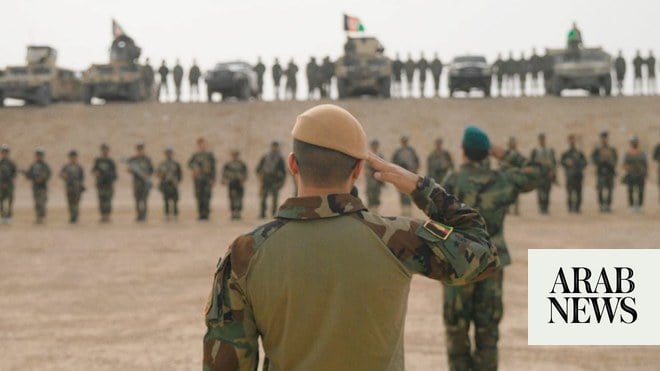
In a report on April 7, NBC News broke a major story: During his surprise visit to Kabul on March 23, US Secretary of State Mike Pompeo threatened to pull out all American troops from Afghanistan if President Ashraf Ghani and his main political rival, Abdullah Abdullah, failed to resolve a weeks-long political crisis that has prevented the launch of formal peace talks between the Taliban and the Afghan government.
Pompeo’s threat is not only unsurprising, it is also one that Washington is increasingly likely to carry out, given how events are playing out.
For many days, the Trump administration has telegraphed its growing frustration and impatience with the lack of progress in the Afghan peace process. Pompeo’s visit to Kabul was supposed to be a last-ditch effort to break the political impasse that has prevented the launch of a peace process the Trump administration desperately wants to succeed, and soon.
Washington does not want its agreement with the Taliban — a troop withdrawal deal concluded at the end of February that paved the way for talks between Kabul and the insurgents — to have been negotiated in vain. Nor does it want to face the prospect of withdrawing militarily from Afghanistan without a peace deal in place; because of the threat this would pose to stability, for sure, but also because of the accusations of surrender that critics would inevitably lob its way. Such accusations, especially in an election year, could be politically damaging to the administration.
Then there are Trump’s personal reasons for wanting a peace deal. The NBC News report revealed that, as many had long suspected, the president has his eye on a certain prize. After the US-Taliban deal was agreed in January — and some weeks before it was signed — Trump “complained that he hasn’t been awarded a Nobel Prize yet, and said if he’s not given one for ending the war in Afghanistan then the Norwegian Nobel Committee’s process is rigged.”
Pompeo’s visit was one manifestation of the administration’s impatience. Another was the $1 billion reduction in aid to Afghanistan that was announced soon after the trip. Yet another is the frequent messages from the State Department about the need for Ghani and Abdullah to get their act together and resolve their spat so that peace talks can begin.
Against this backdrop, it makes sense that Pompeo would go all-in when applying leverage by threatening to cut aid and withdraw troops. The strategy is, in effect, to deploy your two most powerful levers of influence — the most potent elements in your policy toolkit — to get the result you want. From Washington’s perspective, it might make sense; given how deeply dependent Kabul is on US financial and military largesse, surely something has to give.
And yet, several weeks after both threats were made, the Ghani-Abdullah spat remains unresolved.
The idea of a full and immediate withdrawal of US troops might seem hard to believe, for several reasons. US officials have long signaled that they hope to maintain a residual force in Afghanistan, mainly for counterterrorism purposes but also to continue training and advising Afghan security forces. Additionally, the US-Taliban deal stipulates that a full troop withdrawal will be completed within 14 months, but only if the insurgents have fulfilled a series of counterterrorism commitments and launched peace talks with Kabul.
And yet, that withdrawal could well be hastened, even in contravention of Washington’s accord with the Taliban. Peace prospects, which appeared highly promising immediately after the signing of the US-Taliban deal, have gone from bad to worse.
The most potent US carrots and sticks have failed to break the Ghani-Abdullah deadlock. The Taliban have stepped up their attacks. Talks concerning a Taliban prisoner-release arrangement — another obstacle to the launch of peace talks, because the insurgents have refused to negotiate with Kabul until the issue is resolved — have fallen apart, at least for now.
Trump might well use the coronavirus, and the threat it poses to American troops, as a pretext for an expedited US withdrawal from Afghanistan.
Michael Kugelman
Meanwhile, the coronavirus pandemic has hit Afghanistan. Kabul will struggle to maintain its focus on peace and reconciliation amid this complex health emergency. And US troops will be vulnerable. Already, four soldiers with the NATO mission in Afghanistan (their nationalities have not been revealed) have tested positive for the virus.
Trump might well use the coronavirus, and the threat it poses to American troops, as a pretext for an expedited US withdrawal from Afghanistan. Administration officials, after all, frequently insist that their main foreign policy objective is to protect American lives.
In reality, pulling all troops much earlier than expected would be one final expression of Washington’s displeasure with the trajectory of the peace talks. It would also send an emphatic message from the administration that, despite Trump’s pitch for a Nobel Prize, there are limits to how long it will wait for those elusive peace talks to get off the ground.
Michael Kugelman is deputy director of the Asia Program and senior associate for South Asia at the Woodrow Wilson International Center for Scholars. Twitter: @michaelkugelman
Disclaimer: Views expressed by writers in this section are their own and do not necessarily reflect Arab News" point-of-view












